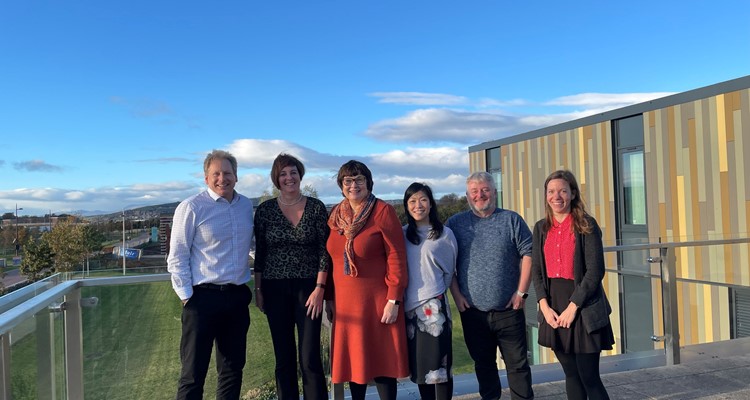
NHS Highland has been successful in obtaining £100,000 from the Medical Research Council to develop a new framework that will help reduce environmental pollution from healthcare practices – an innovation-first for the UK.
NHS Highland has been successful in obtaining £100,000 from the Medical Research Council to develop a new framework that will help reduce environmental pollution from healthcare practices – an innovation-first for the UK.
Sharon Pfleger, Consultant in Pharmaceutical Public Health, in collaboration with the University of Nottingham and the University of the Highlands and Islands, will work to develop a framework to help formulary decision makers take account of environmental impact alongside environmental monitoring and waste-water processing information (e.g. how much gets removed during wastewater treatment). An easy-to-understand environmental ranking system for prescribers and the public will be developed, enabling more sustainable prescribing choices to be made, while at the same time ensuring the medicines they choose will result in the desired clinical outcomes.
The research will build on the work of the cross-sector One Health Breakthrough Partnership (OHBP). It will continue to utilise the OHBP’s novel data visualisation tool, which was designed to help develop a better understanding of the link between medicine use and the presence of pharmaceuticals in the environment – another world first.
Gaener Rodger, Board Sustainability Champion for Climate Emergency and Environmental Sustainability, said: “I am delighted that NHS Highland is continuing to develop innovative new approaches that help reduce the impact of Healthcare on the environment. As outlined in the NHS Scotland climate emergency and sustainability strategy: 2022-2026, launched this year, sustainable care can have a huge impact on both our communities and the environment.
By considering the environmental impact of a medicine alongside patient safety, clinical effectiveness, and cost effectiveness we are one step closer to providing more sustainable care as we transition to a net-zero health service. This new tool will promote shared decision making and support both clinicians and patients to make better prescribing choices.”
Ian Rudd, the NHS Highland Director of Pharmacy, said: “This research grant is the culmination of many years hard work by the team and is well deserved. The grant will help NHS Highland, in collaboration with the University of Nottingham and the University of the Highlands and Islands, remain at the forefront of research in this area and ensure that NHS Highland contributes to sustaining the Highland environment.”
Professor Boyd Robertson, Board Chair, commented “The Team is congratulated on submitting such a persuasive case and gaining Medical Research Council funding in a highly competitive application round. The MRC has clearly recognised the great significance of this research which has the potential to help make prescribing more sustainable, not only in the UK, but across the world.”
Pharmaceutical pollution is a well-recognised global public health and environmental issue. Medicines negatively impact the environment through water pollution and large carbon emissions – medicines contribute 25% of the NHS carbon footprint. Many medicines like antibiotics, anti-inflammatories and anti-depressants have been detected in fresh water like rivers and lochs. Medicines have biological effects on our bodies, and can also elicit potentially negative effects on soil, crops, and aquatic life.
In the Medical Research Council funding bid, the team received a median score of 9/10 for their proposal, an outstanding score to achieve and a real testament to the robustness of the research and the experience of the team.
